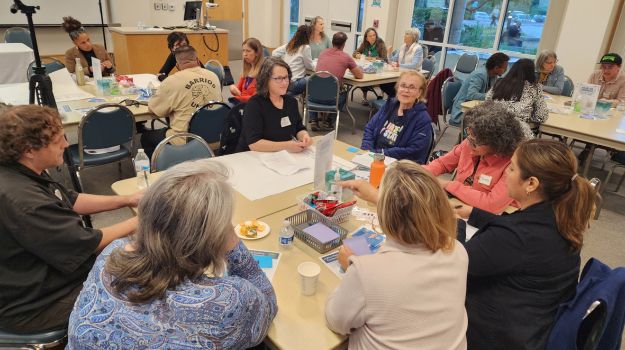
In April, the Shared Safety Workgroup brought together over 80 community members and leaders in Santa Cruz County for the "Healing our Communities Restorative Practices" forum. The event aimed to clarify the distinction between restorative justice and practices, showcase existing models, provide a platform for lived experiences, and foster community dialogues.
Survey results showed a significant increase in understanding: 92% now grasp the difference between restorative practices and restorative justice, up from 8%. Additionally, 87.5% are now familiar with existing programs, compared to 12.5% before the event.
Sarah Emmert, Director of Community Impact at United Way, reflected on the transformative power of restorative justice, stating, “For the past 7 years, the Shared Safety Workgroup has been working to better meet the needs of survivors of crime. Restorative justice is a transformative process that fosters resolution, accountability, and, importantly, facilitates healing.”
Julia Feldman, Executive Director of the Conflict Resolution Center, emphasized the holistic approach of restorative justice, saying, “Restorative Justice focuses on individuals who have been harmed, as well as those who have caused harm, and considers the impact on the community, thereby enhancing the quality and effectiveness of justice and accountability.”
The forum served as a catalyst for collective action towards justice, healing, and community resilience. Through ongoing dialogue and advocacy, the Shared Safety Workgroup advances a more equitable and compassionate approach to addressing harm and building stronger communities.
By: Sarah Emmert & Tuan Nguyen
